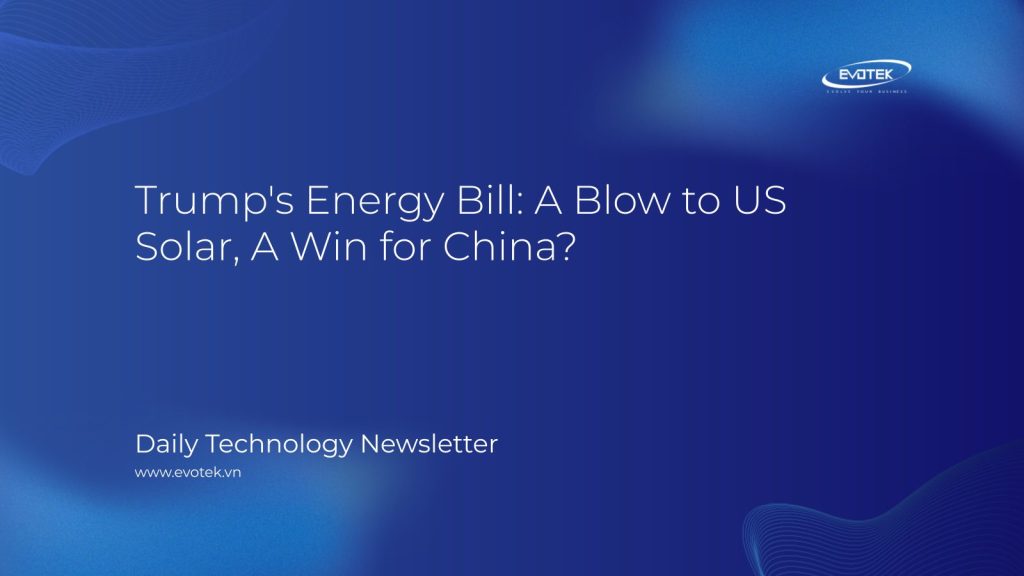A proposed energy bill, dubbed the “Big, Beautiful Bill,” is sparking controversy, with industry experts warning it could cripple the US solar energy sector and hand dominance to China.
While some of the most damaging provisions were removed during Senate negotiations, the bill still faces heavy criticism for potentially undermining domestic solar manufacturing.
Key Changes and Concerns
The bill aims to roll back several clean energy initiatives from the 2022 Inflation Reduction Act, including incentives for both domestic and large-scale solar projects, and the Clean Electricity Production Credit. A particularly contentious point is the removal of the Domestic Content bonus, designed to encourage the use of US-made components.
According to Rob Gardner, Vice President of SEMA, the Solar Energy Manufacturers for America coalition, the bill creates “uncertainty for long-term demand for US products.” American-made solar panels are often more expensive than Chinese alternatives due to higher production costs. By eliminating incentives, the US market could be flooded with cheaper, foreign-made products after the current tax credits expire.
Potential Impacts
The US Energy Information Administration projects a near two percent increase in domestic energy consumption in the coming year. Experts worry that a slowdown in renewable energy development, which accounted for almost 90 percent of new power generation capacity in 2024, could hinder progress.
Abigail Ross Hopper, CEO of the Solar Energy Industries Association, argues that the bill “undermines the very foundation of America’s manufacturing comeback,” potentially leading to higher electricity bills, factory closures, and job losses.
Jason Grumet, CEO of the American Clean Power Association, views the bill as a “step backward” for American energy policy and an “intentional effort” to weaken the growth of renewable energy sources.
Environmental Concerns
Environmental groups are voicing strong opposition. Greenpeace USA’s John Noël calls it a vote that will “live in infamy” for its perceived support of the fossil fuel industry.
Joanna Slaney of the Environmental Defense Fund believes the bill “effectively cut[s] off supply of cheap energy right when the US needs it most,” while also giving a “10-year reprieve from paying a fee on wasteful methane pollution.”
Future Outlook
Research from Cleanview suggests that the bill’s strict deadlines for project construction to qualify for existing credits could jeopardize up to 600GW of new renewable energy capacity, including solar farms and battery storage projects in key states like California and Texas.

 日本語
日本語 한국어
한국어 Tiếng Việt
Tiếng Việt 简体中文
简体中文